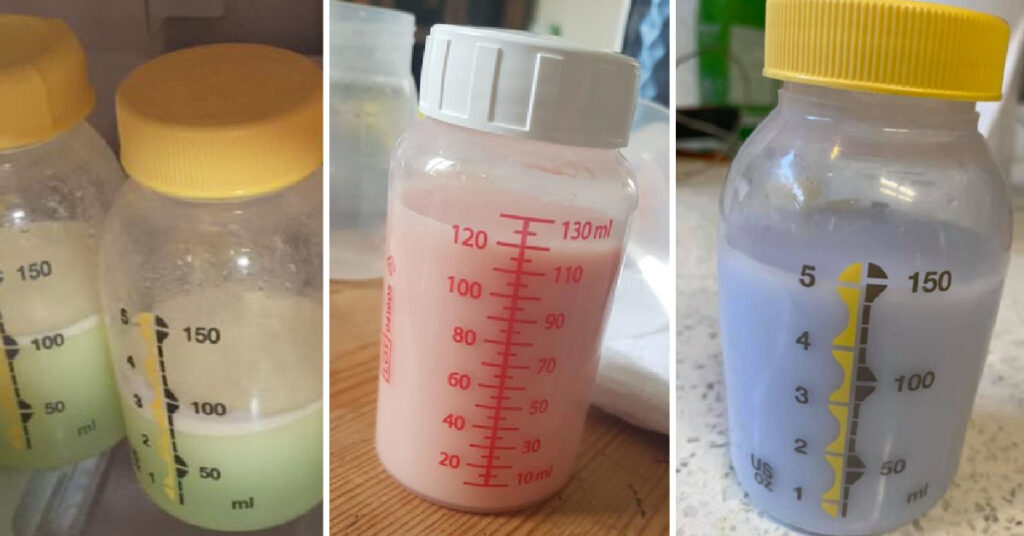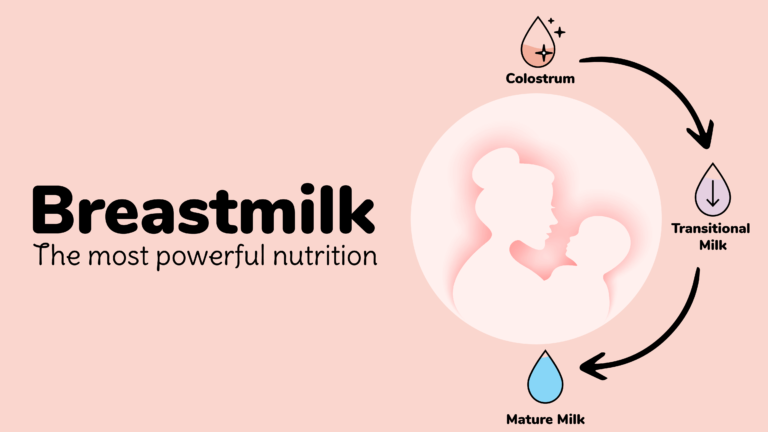When To Expect Your Breast Milk To Come In?

If you’re expecting a baby and planning to nurse, you might be curious about how your milk supply will develop after birth. Breastfeeding in the initial hours doesn’t involve large quantities of milk. Instead, you produce smaller amounts of different types of breast milk before your mature milk arrives. Understanding these changes is crucial for new parents. Here’s what you need to know about when your breast milk comes in and what to do if there’s a delay.
Stages of Breast Milk
According to Taniqua Miller, M.D., an Atlanta-based OB-GYN, there are three stages of breast milk development after birth: colostrum, transitional milk, and mature milk.
Colostrum
Colostrum is the first milk your breasts produce, usually thicker and dark yellow. It is rich in protein and antibodies essential for your baby’s immune system. Abrie McCoy, a certified lactation consultant (CLC) with SimpliFed, notes that colostrum has been in production since the second trimester of pregnancy. Although you won’t produce much, your baby needs only a small amount in these first few days.
Related: 13 Best Foods For Breastfeeding
Transitional Milk
About two to five days after giving birth, your milk transitions to a lighter and thinner form known as transitional milk. This milk contains additional fat to sustain your baby until your mature milk comes in. This stage can last up to two weeks postpartum.
Mature Milk
Mature milk is the final stage and is thinner than transitional milk, especially when it first comes out. As feeding progresses, it becomes creamier as the fat content increases toward the end of each feeding session.
Signs Your Breast Milk Is Coming In
Several signs indicate that your milk is transitioning to mature milk. Most notably, you’ll experience an increase in the size, heaviness, or fullness of your breasts. Amanda P. Williams, M.D., MPH, medical director at Mahmee, explains that you might feel sensations of pressure, warmth, or sensitivity in your breasts and nipples. Some women may even experience a low-grade fever for about 24 hours.
You might also notice milk leaking or spraying from the nipple when it’s time to feed. Your breasts will feel heavy when full and empty after feeding your baby. Additionally, your baby will show signs of satisfaction and increased periods of sleep, and you’ll see more wet and dirty diapers.
What Can Cause Delay in Breast Milk?
Milk volume usually increases within the first 30 hours after birth. If there’s no increase by 72 hours postpartum, it’s considered delayed onset of lactation (DOL). Several factors can cause DOL, including:
- Cesarean delivery
- Gestational diabetes
- Polycystic ovarian syndrome (PCOS)
- Obesity
- Thyroid issues
Preterm birth can also cause DOL due to skewed hormonal signaling and the challenges of nursing a preterm infant. Retained placental fragments can further delay lactation, as the delivery of the placenta triggers the hormonal shift needed for milk production.
What To Do if Your Breast Milk Is Delayed
If your milk is delayed, don’t panic. There are several things you can do to stimulate milk production:
- Skin-to-Skin Contact: Spend lots of skin-to-skin time with your baby and continue offering them your breast.
- Milk Removal: Continue expressing milk even if it seems like you’re producing only colostrum or transitional milk. Hand expressing may be more efficient than using an electric pump, but both methods help signal your body to produce more milk.
- Hydration: Ensure you’re getting plenty of fluids. Drink to thirst and aim for at least one cup of water during each nursing session.
- Rest and Sleep: Get as much rest and sleep as possible to support milk production.
- Proper Latch: Ensure your baby has a proper latch. If you’re unsure, consult a lactation specialist who can help improve the latch and build a strong foundation for your milk supply.
While trying these remedies, consider making an appointment with your provider. They can check for any issues like retained placental fragments and ensure your baby is getting enough nutrition.
How To Get Help
If you have concerns about your milk production, contact your provider. They can tell you if your experience is typical and refer you to a lactation specialist if needed. You can also find lactation consultants through your insurance company or organizations like the Academy of Lactation Policy and Practice or the International Lactation Consultant Association.
Remember, nursing can be challenging and may take time to establish. If you’re struggling despite getting help, know that you’re not alone. The most important thing is that your baby is getting enough to eat and that you’re feeling supported. Work with your baby’s healthcare provider to monitor their weight, as babies are expected to lose some birth weight before gaining it back.
Nursing is a journey, and every mother and baby pair is unique. With patience, support, and proper guidance, you can successfully navigate this important phase of parenthood.
Related: Everything You Need To Know About Breast Milk Color






